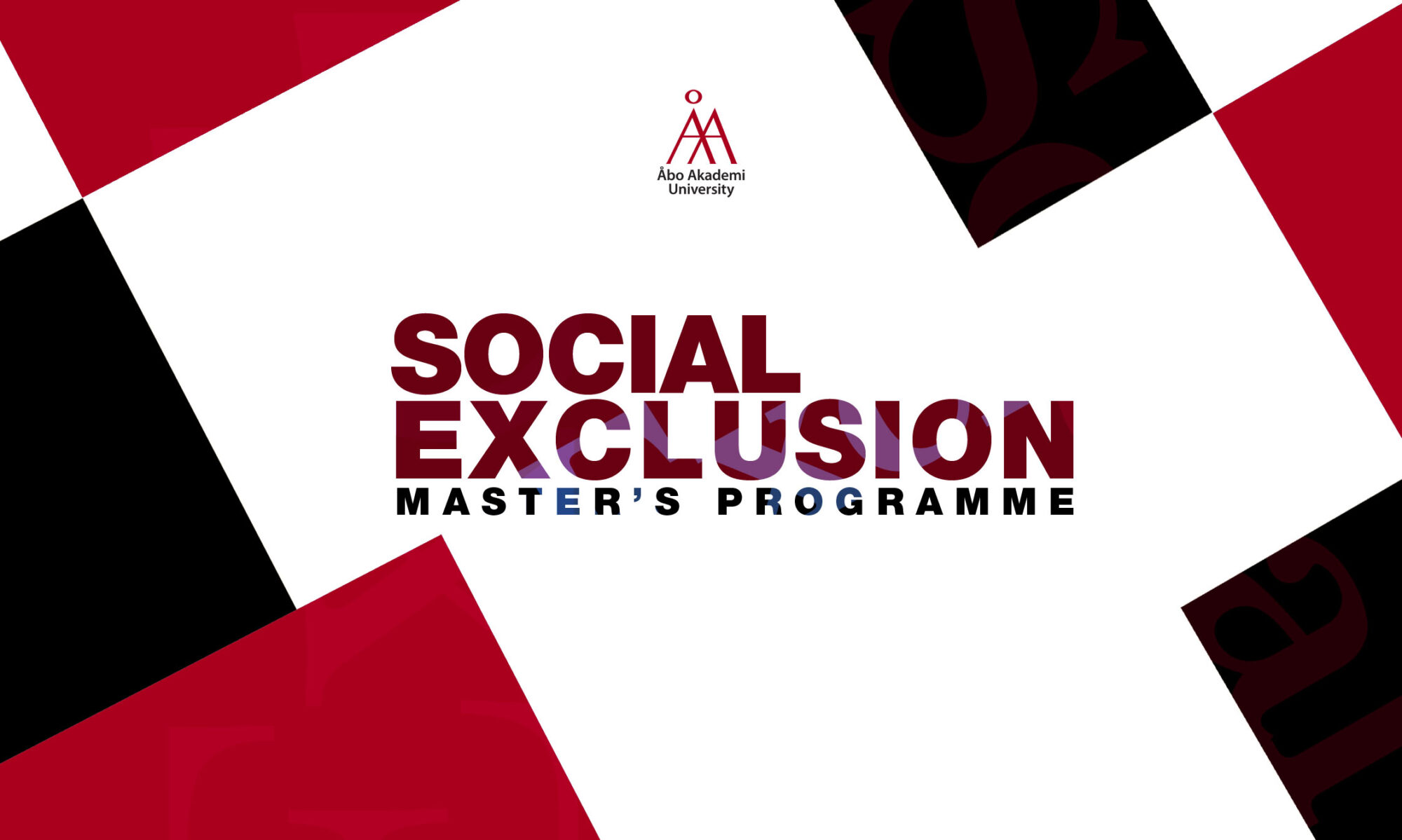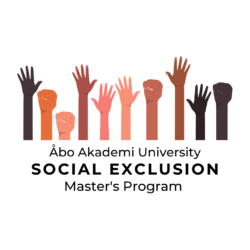By Islam Sabry

As we commemorate the 5th anniversary of the Social Exclusion Master’s Program at Åbo Akademi University, we reflect on the transformative journey from its inception to its current standing as a beacon of inclusivity and social change. We had the opportunity to connect with key figures who played pivotal roles in shaping the program — Peter Nynäs, the Faculty of Arts, Theology, and Psychology Dean, and Aminkeng A. Alemanji, the head of the Social Exclusion Master’s Program.
A Vision Transformed into Reality: Insights from Peter Nynäs
 In our correspondence with Peter Nynäs, the first head of the program, we delved into the early days when the idea of the Master’s Degree Programme in Social Exclusion was taking shape. The decision to start the program was initiated by the Åbo Akademi University board in August 2017, marking a significant milestone as the first international program in the Faculty of Arts, Psychology, and Theology.
In our correspondence with Peter Nynäs, the first head of the program, we delved into the early days when the idea of the Master’s Degree Programme in Social Exclusion was taking shape. The decision to start the program was initiated by the Åbo Akademi University board in August 2017, marking a significant milestone as the first international program in the Faculty of Arts, Psychology, and Theology.
Fostering an Interdisciplinary Approach
The collaborative efforts of the history subject, studies of religion, gender studies, and systematic theology resulted in a program that aimed to bring together diverse resources for research and teaching. The interdisciplinary approach was underlined by a commitment to humanities, emphasizing the relevance of education and research in addressing societal issues from a global perspective.
Peter Nynäs notes that while the initial proposal had a different name, the emergence of the name ‘Social Exclusion Master’s Program’ resulted from the fact that similar concerns and topics were at the core of both academic and societal programs on social exclusion, hence, the name of the program. The establishment of the program also played a pivotal role in strengthening the Minority Research Profile, fostering a harmonious balance between research and education.
At the heart of the Social Exclusion Master’s Program’s inception was a profound understanding that social and cultural futures, alongside economic and political development, are intricately woven into diverse cultural processes that span both local and global dimensions. Guided by this foundational principle, the program took decisive steps to materialize its ambitions. Initiatives were set in motion to commence the program, securing teaching resources beyond initial plans, and ultimately welcoming the first group of students. This strategic approach marked the beginning of a journey dedicated to exploring, understanding, and addressing the complexities of social exclusion on a global scale.
Milestones and Achievements: Aminkeng A. Alemanji’s Perspective
 In our correspondence with Aminkeng Alemanji, the current head of the Social Exclusion Master’s Program, we gained insights into the major milestones and achievements of the program. He highlighted the journey from an idea conceived by Peter Nynäs to the program’s realization.
In our correspondence with Aminkeng Alemanji, the current head of the Social Exclusion Master’s Program, we gained insights into the major milestones and achievements of the program. He highlighted the journey from an idea conceived by Peter Nynäs to the program’s realization.
What Sets SoEx Apart
Alemanji underscores the uniqueness of the Social Exclusion Master’s Program. Not only is it committed to social justice as a remedy for social exclusion, but its vibrant curriculum, taught by outstanding teachers from around the world, is what sets it apart. Graduates leave not only with academic knowledge but also with valuable work-life skills.
Being a multidisciplinary MA program, SoEx offers students a chance to explore different perspectives on social exclusion, fostering a broad understanding of this complex subject. The program’s emphasis on unity and familial bonds among students contributes to a supportive learning environment.
Evolving with the Times and Addressing Changing Needs
The program’s growth is evident in the increasing number of students. Starting with a modest number in the first year, the program now boasts 35 students, showcasing its appeal and relevance. Alemanji emphasizes that SoEx was the first program at ÅAU to abandon the rigid language requirement policy to a more forward-thinking and equitable language policy exemplifying the program’s commitment to inclusivity.
Aminkeng A. Alemanji also discussed how the program has evolved to meet the changing needs of students and society. Graduates returning as program assistants have provided valuable insights for program development. The curriculum now includes two work-life-related courses, offering students opportunities to develop professional and entrepreneurial skills through mentorship programs and workshops. Moreover, annual antiracism seminars, organized by students, serve as a platform to address social exclusion-related issues in society.
A Continued Commitment to Inclusion and Positive Change
The journey of the Social Exclusion Master’s Program is not merely a reflection of the past five years but a testament to its enduring commitment to inclusion and positive change. Since its inception, the program has grown and evolved, breaking barriers and fostering an environment where diversity is celebrated, and societal challenges are addressed with academic rigor.
As we look ahead, the Social Exclusion Master’s Program remains dedicated to shaping future leaders equipped with both academic knowledge and practical skills. The program’s commitment to social justice, its multidisciplinary approach, and its emphasis on unity within the student community set a standard for excellence.
Here’s to many more years of growth, learning, and impactful contributions as the Social Exclusion Master’s Program continues to shape a brighter, more inclusive future.

